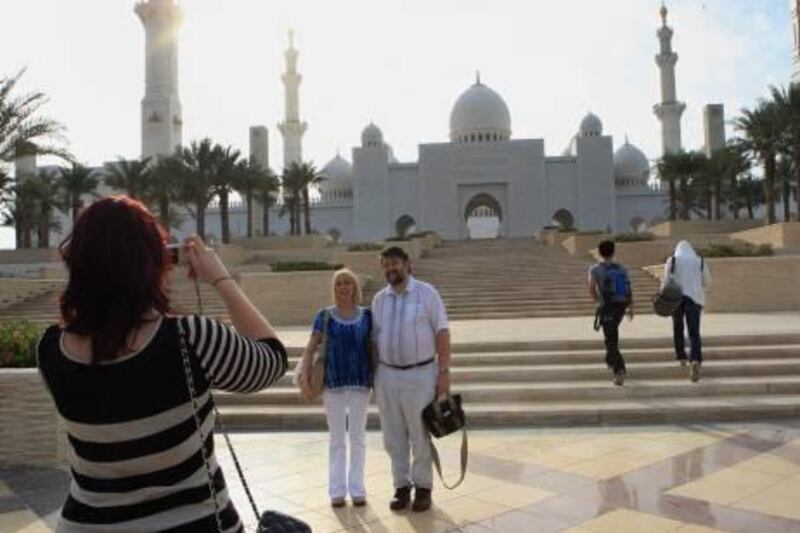DUBAI // The political unrest that has spread across many countries in the region is having an impact on tourism in safe destinations such as the UAE, according to the Rotana chief executive, Selim El Zyr.
Mr El Zyr said that when the protests began in Egypt hotel occupancy rates in the UAE, Qatar and Turkey began to rise significantly.
"Tourists diverted their holidays to safe destinations in the region," Mr El Zyr said. "This re-emphasises the stability of the UAE, not only for tourists, but also investors."
More specifically, he said, "Perhaps the best example of this would be Egypt. The restrictions on travel by the main feeder markets, like Russian citizens to Sharm el Sheikh, have seriously reduced prospects for that country's tourism industry," he said.
Mark Wynne-Smith, the Jones Lang Lasalle Hotels CEO for Europe, the Middle East and Africa, said that in Bahrain, hotel occupancy reportedly fell by 20 per cent and websites of international hotels in Tripoli were not accepting bookings. He said: "This clearly contrasts with other markets, for example Morocco, Qatar and UAE. These are perceived as being somewhat removed from current unrest."
Mr Wynne-Smith predicted local occupancy levels would grow throughout 2011 and supply would increase by 20 per cent by 2013.
Jordan, Oman and Syria also experienced a curb in springtime traffic, which the UAE was picking up, said Siegfried Nierhaus, the managing director of Atlas Hospitality, which specialises in hotel project development.
Christos Evangelinelis, 39, a tourist to Dubai from Greece, had planned to visit Syria during his one-week Easter holiday, but switched to the UAE because of the unrest.
“Syria was the destination, but Dubai is like Miami. We feel extremely safe here,” he said.
Industry officials will meet at the Arabian Hotel Investment Conference (AHIC) in Dubai at the end of the month to discuss regional changes and what these mean for the future.
The conference organiser, Jonathan Worsley, said he had never seen such a dramatic change in the market. “In hotel development offices around the world, little pins are being moved around maps,” he said.
According to Mr Wynne-Smith, another country in the spotlight is Morocco, where business is also likely to be redirected.
Tourism is the second-largest contributor to the Morocco’s gross domestic product, and offered employment to half a million people, according to Morocco’s tourism minister, Yasir Zanagari.
In November 2010, the country launched a plan called Vision 2020 with the aim of placing Morocco among the top 20 destinations worldwide.
“Our objective is to double the size of the sector within a decade, doubling the number of international tourists and tripling the number of domestic trips,” said Mr Zanagari. “This means a high diversity of projects and opportunities for investment. Morocco’s attractive territory is largely unexploited still.”
Mike Scully, the managing director of the international holding company Seven Tides, believed it was more than the country’s stability that drew guests to the UAE.
“The political stability, well-established business credentials and centralised location at the crossroads of the East and West have long been a draw card, and this has continued,” said Mr Scully.
The Abu Dhabi Tourism Authority said visitors to the capital increased by 18 per cent last year, and according to Dubai Department of Tourism and Commerce Marketing, more than 4.1 million people stayed in Dubai hotels in the first half of last year, up 9 per cent from 2009.
“As stability returns across the region, growth will return to the tourism sector with renewed confidence among international and regional tourists,” Mr Scully said. “With leisure and business travellers continuing to be attracted to the UAE, visitors have no cause for worry.”
With additional reporting by Carol Huang






